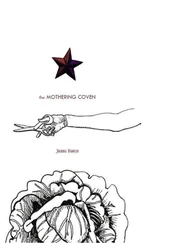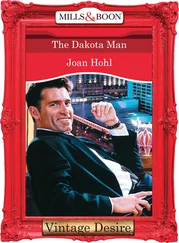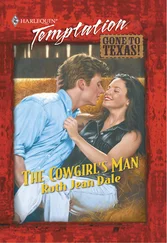When Janet Evason returned to the New Forest and the experimenters at the Pole Station were laughing their heads off (for it was not a dream) I sat in a cocktail party in mid-Manhattan. I had just changed into a man, me, Joanna. I mean a female man, of course; my body and soul were exactly the same.
So there’s me also.
The first man to set foot on Whileaway appeared in a field of turnips on North Continent. He was wearing a blue suit like a hiker’s and a blue cap. The farm people had been notified. One, seeing the blip on the tractor’s infrared scan, came to get him; the man in blue saw a flying machine with no wings but a skirt of dust and air. The county’s repair shed for farm machinery was nearby that week, so the tractor-driver led him there; he was not saying anything intelligible. He saw a translucent dome, the surface undulating slightly. There was an exhaust fan set in one side. Within the dome was a wilderness of machines: dead, on their sides, some turned inside out, their guts spilling on to the grass. From an extended framework under the roof swung hands as big as three men. One of these picked up a car and dropped it. The sides of the car fell off. Littler hands sprang up from the grass.
“Hey, hey!” said the tractor-driver, knocking on a solid piece set into the wall. “It fell, it passed out!”
“Send it back,” said an operator, climbing out from under the induction helmet at the far end of the shed. Four others came and stood around the man in the blue suit.
“Is he of steady mind?” said one.
“We don’t know.”
“Is he ill?”
“Hypnotize him and send him back.”
The man in blue—if he had seen them—would have found them very odd: smooth-faced, smooth-skinned, too small and too plump, their coveralls heavy in the seat. They wore coveralls because you couldn’t always fix things with the mechanical hands; sometimes you had to use your own. One was old and had white hair; one was very young; one wore the long hair sometimes affected by the youth of Whileaway, “to while away the time.” Six pairs of steady curious eyes studied the man in the blue suit.
“That, mes enfants,” said the tractor-driver at last, “is a man.
“That is a real Earth man.”
Sometimes you bend down to tie your shoe, and then you either tie your shoe or you don’t; you either straighten up instantly or maybe you don’t. Every choice begets at least two worlds of possibility, that is, one in which you do and one in which you don’t; or very likely many more, one in which you do quickly, one in which you do slowly, one in which you don’t, but hesitate, one in which you hesitate and frown, one in which you hesitate and sneeze, and so on. To carry this line of argument further, there must be an infinite number of possible universes (such is the fecundity of God) for there is no reason to imagine Nature as prejudiced in favor of human action. Every displacement of every molecule, every change in orbit of every electron, every quantum of light that strikes here and not there—each of these must somewhere have its alternative. It’s possible, too, that there is no such thing as one clear line or strand of probability, and that we live on a sort of twisted braid, blurring from one to the other without even knowing it, as long as we keep within the limits of a set of variations that really make no difference to us. Thus the paradox of time travel ceases to exist, for the Past one visits is never one’s own Past but always somebody else’s; or rather, one’s visit to the Past instantly creates another Present (one in which the visit has already happened) and what you visit is the Past belonging to that Present—an entirely different matter from your own Past. And with each decision you make (back there in the Past) that new probable universe itself branches, creating simultaneously a new Past and a new Present, or to put it plainly, a new universe. And when you come back to your own Present, you alone know what the other Past was like and what you did there.
Thus it is probable what Whileaway—a name for the Earth ten centuries from now, but not our Earth, if you follow me—will find itself not at all affected by this sortie into somebody else’s past. And vice versa, of course. The two might as well be independent worlds.
Whileaway, you may gather, is in the future.
But not our future.
I saw Jeannine shortly afterward, in a cocktail lounge where I had gone to watch Janet Evason on television (I don’t have a set). Jeannine looked very much out of place; I sat next to her and she confided in me: “I don’t belong here.” I can’t imagine how she got there, except by accident. She looked as if she were dressed up for a costume film, sitting in the shadow with her snood and her wedgies, a long-limbed, coltish girl in clothes a little too small for her. Fashion (it seems) is recovering very leisurely from the Great Depression. Not here and now, of course. “I don’t belong here!” whispered Jeannine Dadier again, rather anxiously. She was fidgeting. She said, “I don’t like places like this.” She poked the red, turfed leather on the seat
“What?” I said.
“I went hiking last vacation,” she said big-eyed. “That’s what I like. It’s healthy.”
I know it’s supposed to be virtuous to run healthily through fields of flowers, but I like bars, hotels, air-conditioning, good restaurants, and jet transport, and I told her so.
“Jet?” she said.
Janet Evason came on the television. It was only a still picture. Then we had the news from Cambodia, Laos, Michigan State, Lake Canandaigua (pollution), and the spinning globe of the world in full color with its seventeen man-made satellites going around it. The color was awful. I’ve been inside a television studio before: the gallery running around the sides of the barn, every inch of the roof covered with lights, so that the little woman-child with the wee voice can pout over an oven or a sink. Then Janet Evason came on with that blobby look people have on the tube. She moved carefully and looked at everything with interest. She was well dressed (in a suit). The host or M.C. or whatever-you-call-him shook hands with her and then everybody shook hands with everybody else, like a French wedding or an early silent movie. He was dressed in a suit. Someone guided her to a seat and she smiled and nodded in the exaggerated way you do when you’re not sure of doing the right thing. She looked around and shaded her eyes against the lights. Then she spoke.
(The first thing said by the second man ever to visit Whileaway was, “Where are all the men?” Janet Evason, appearing in the Pentagon, hands in her pockets, feet planted far apart, said, “Where the dickens are all the women?")
The sound in the television set conked out for a moment and then Jeannine Dadier was gone; she didn’t disappear, she just wasn’t there any more. Janet Evason got up, shook hands again, looked around her, questioned with her eyes, pantomimed comprehension, nodded, and walked out of camera range. They never did show you the government guards.
I heard it another time and this is how it went:
MC: How do you like it here, Miss Evason?
JE (looks around the studio, confused): It’s too hot.
MC: I mean how do you like it on—well, on Earth?
JE: But I live on the earth. (Her attention is a little strained here.)
MC: Perhaps you had better explain what you mean by that—I mean the existence of different probabilities and so on—you were talking about that before.
JE: It’s in the newspapers.
MC: But Miss Evason, if you could, please explain it for the people who are watching the program.
Читать дальше












